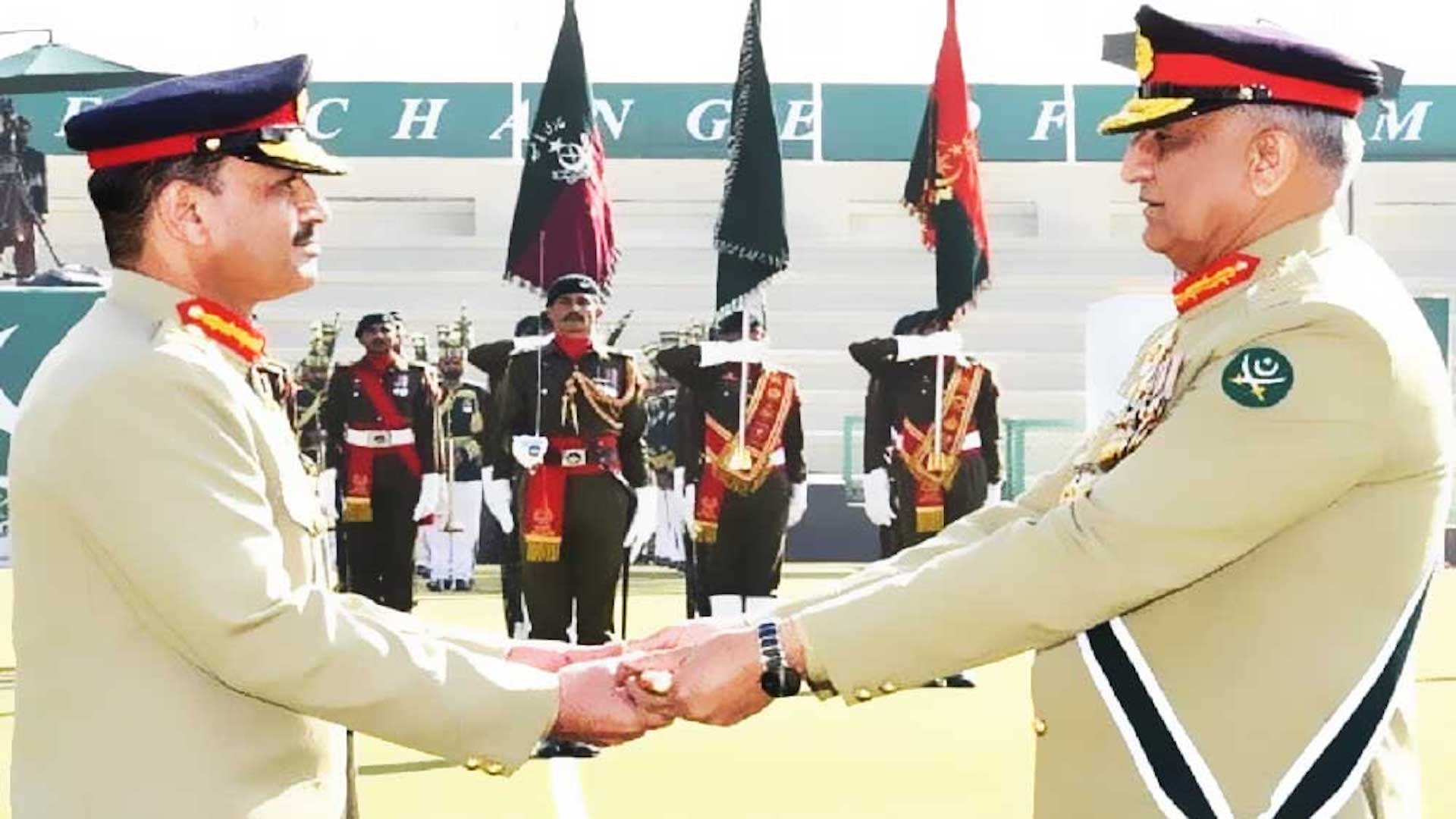The Pakistan military denies its involvement in enforced disappearances, extrajudicial executions and genocide, but it has very little credibility to begin with. Even if one were to disregard their credibility (or lack thereof), we would see a difference in what is happening around us if it were no longer interfering. Nothing has changed — except faces.
The Vote of No-Confidence last year was meant to be some big democratic win against this ridiculous hybrid regime that was inflicted upon us by the same generals to whom the Pakistan Democratic Movement (PDM) kow-towed, and is continuing to kow-tow in their desperation for some semblance of power. Whatever this version of power is means nothing really when our biggest issues, including enforced disappearances and broader issues of resource capture and abuse of law to suppress thought and dissent, remain untouched. It would appear neither the establishment nor the political elite respect civil liberties. The tragedy is that even the celebrated ouster of Imran Khan (brought in by the generals), through a Constitutional and democratic process, in itself couldn’t have taken place without the establishment’s nod of approval. There is no neutrality. And there wont be any till politicians stop targeting each other to win favour with the military. What was wrong yesterday does not become right today because those who said the right things yesterday are in power — no one stands up for principles when they are in power.
I will perhaps believe claims of “neutrality” when things on ground actually change – when courts function independently, when trumped up cases are not registered against journalists, activists, politicians and others. At the very least, to show even a tiny glimmer of “neutrality,” MNA Ali Wazir could have been released — the same Ali Wazir without whose vote this government would not even be here today. But such is “neutrality” in Pakistan — we keep being told with a gun to our heads to accept this “neutrality.”
In the last few months alone, the number of Baloch students being picked up on a daily basis seems to have increased. When protestors in Gwadar came out onto the streets, there was an internet shutdown for ten days and hundreds were either illegally arrested or forcibly disappeared. When people in Gilgit-Baltistan came out in huge numbers, hardly any media reported the protest. Issues of the peripheries remain their issues — the Federation seems least bothered. It is not on the agenda to improve the situation of human rights — that is why once again we are seeing a resurgence of terrorism and the groundwork being laid for another round of giving up our civil liberties on the pretext of “national security.”
At the very least, to show even a tiny glimmer of “neutrality,” MNA Ali Wazir could have been released — the same Ali Wazir without whose vote this government would not even be here today.
The issue of people from the “peripheries” neither feature in mainstream political discourse nor in mainstream media. The racial profiling of Baloch students in Islamabad and Punjab resulted in the formation of the Akhtar Mengal-led Commission by the federal government on directions of the Islamabad High Court (IHC). We are hopeful its report will contain important recommendations as to resolving their grievances and recovering 69+ Baloch students whose list we provided to the Commission. Ultimately, it is the court’s responsibility to pass a judgment based on these recommendations, and provide legal redress of the grievances raised by these students. There is no information till date on a student, Feroz Baloch, disappeared on 11 May 2022, Sohail and Fassieh Baloch, Arif Hambal and Siraj Noor. Baloch students are being disappeared on an almost daily basis and there is no end in sight of this practice. They are harassed within campuses, outside campuses, at checkposts. We saw how Bebagr Imdad was dragged out of the Punjab University campus by Inter Services Intelligence (ISI) officials with the assistance of the security in charge of the university. There has been no accountability for this and similar illegal actions.
Activists and those who believe in democracy should challenge these rights violations, by sticking to their principles irrespective of who is at the receiving end of state persecution and violence. We must fight to protect those we disagree with. Perhaps most importantly right now, we should resist recurring attempts to further securitize/militarize this country. With the resurgence of terrorism, instead of voluntarily ceding our civil liberties and this country’s resources further, we must fight for answers on the failed security policies imposed on us by the military establishment.

The writer is an Islamabad-based lawyer and human rights activist.

